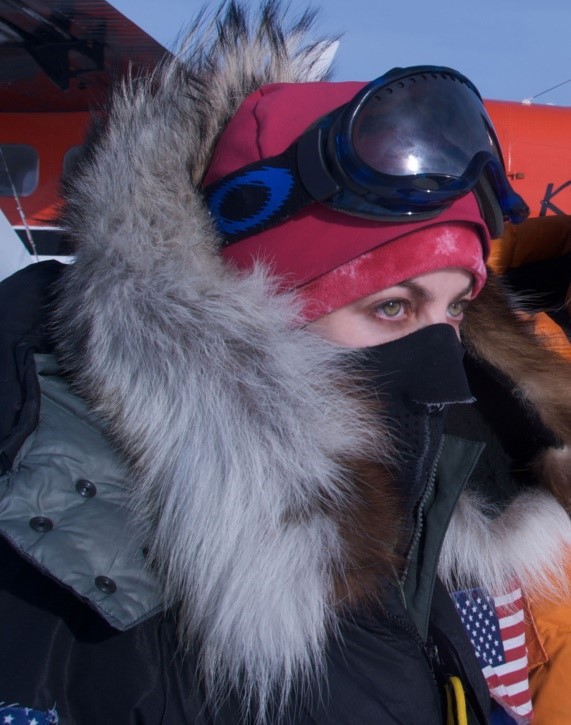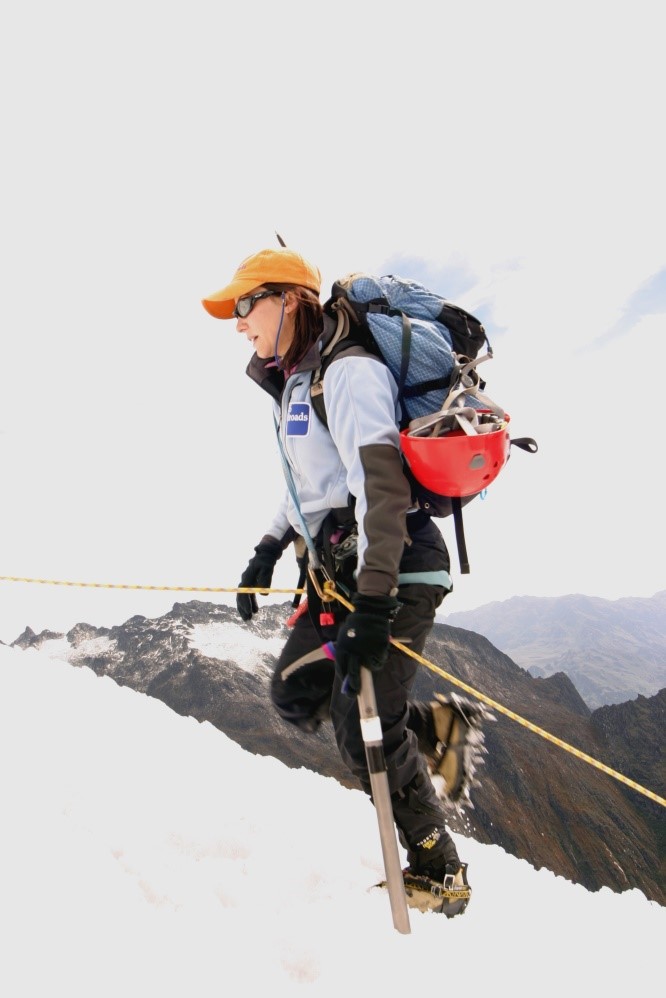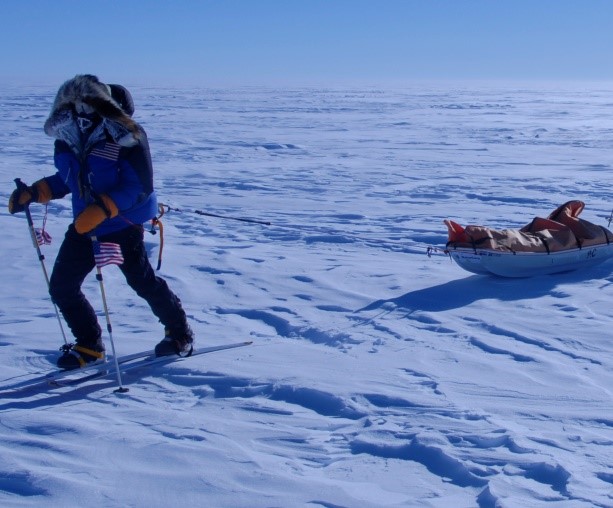 Alison Levine never set out to climb ALL of the seven summits “on purpose.” Rather, this incredible achievement of hers came more as a serendipitous coincidence. She mentioned that as a child she had always been intrigued by mountaineers and polar explorers. One day a light bulb went off for Ms. Levine and she decided that instead of reading and watching documentaries about expeditions in extreme arctic environments, she wanted to experience them firsthand.
Alison Levine never set out to climb ALL of the seven summits “on purpose.” Rather, this incredible achievement of hers came more as a serendipitous coincidence. She mentioned that as a child she had always been intrigued by mountaineers and polar explorers. One day a light bulb went off for Ms. Levine and she decided that instead of reading and watching documentaries about expeditions in extreme arctic environments, she wanted to experience them firsthand.
After her eye-opening “ah-ha” moment, she began climbing mountains all over the world. She found herself being invited on and sponsored for different expeditions, until miraculously Everest was the only summit left for her to conquer. She finally completed her Seven Summit voyage by mounting Everest on May 24, 2010.
When asked about the most rewarding part of her expeditions Alison replied, “I would say the most rewarding part is the feeling of complete awe that overtakes me as I stare at the pure beauty of these remote destinations. Summit or no summit, it really is about the journey. I absolutely love to learn and for me, these environments are the ultimate classroom. I learn so much about myself and about human nature when I immerse myself in these mountains and Polar Regions.”
Although each successful climb came with overwhelming gratification, Ms. Levine also found herself challenged by setbacks as well: “The biggest challenge I ever faced on one of my extreme adventures wasn’t on a mountain – it was on my South Pole expedition where I had to ski 600 miles across Antarctica while hauling a 150lb sled that was harnessed to my waist. It was an incredibly frustrating experience for me because I weigh 112lbs, so trying to drag that sled felt quite impossible at times.” She persevered through this challenging expedition and found ways to positively influence her team that did not involve her physical strength. This especially difficult journey is mentioned in chapter 6 (her favorite chapter) of Ms. Levine’s book On the Edge, which discusses the many lessons she learned through her numerous expeditions.
Alison Levine found that the lessons she learned through her journeys not only applied to climbing mountains, but to everyday life, as well. She now shares these lessons in her book and as a keynote speaker for many different organizations. Here are her top 5 lessons to climb over the obstacles in our own lives:
1) Don’t complain when things are super stressful. Leaders know how to suck it up and get the job done, even during nerve-wracking, uncomfortable times. If you can put a smile on your face and achieve big things during times of crisis, you will stand out from the crowd and people will know you’ve got what it takes to lead.
2) Be proactive. Step up to the plate and ask for extra responsibilities or projects that will allow you to showcase your talents.
3) Be nimble, be flexible, be adaptable. Forget about being hell-bent on sticking to your plan because whatever plan you came up with last year/last month/last week is already outdated in today’s world where everything moves at warp speed.
4) Remember that it’s okay to feel scared or intimidated. There are situations where you should feel fear (it’s a normal human emotion) – just don’t ever let fear prevent you from moving forward. Ms. Levine explains, “When I’m in places where I am often uncomfortable, I learn how to dig down deep and find ‘that voice’ in my head that tells me that I can keep going, even when I am feeling like I can’t possibly take one more step. When I am in situations where I really have to push myself, that’s when I learn about how to be a better at everything. I become a better climber, skier, leader, and teammate. Complacency is what you have to try to avoid.”
5) Give yourself permission to fail. If you are afraid to fail, you’re never going to be brave enough to take the kinds of risks that leaders need to take. Like Ms. Levine, something you should always c arry with you is courage.
arry with you is courage.
Keynote Speaker, author, and adventurer are quite impressive to have under one’s belt, but Alison Levine’s desire for adventure and for knowledge has now inspired her to add executive producer to her resume. She and Nancy Svendsen have embarked on a journey to create a documentary film titled The Glass Ceiling, which depicts the incredible story of Pasang Lhamu Sherpa, the first Nepali woman to climb Mount Everest. Ms. Levine and Ms. Svendsen are now in the process of raising funds for the production and distribution of the film. Alison Levine, adamantly exclaimed, “We (herself and Nancy Svendsen) WILL make sure that the world learns about this incredible woman who was a true architect of change.”
Contributor: Ally Massimi



Comments (0)